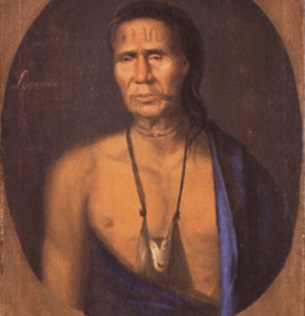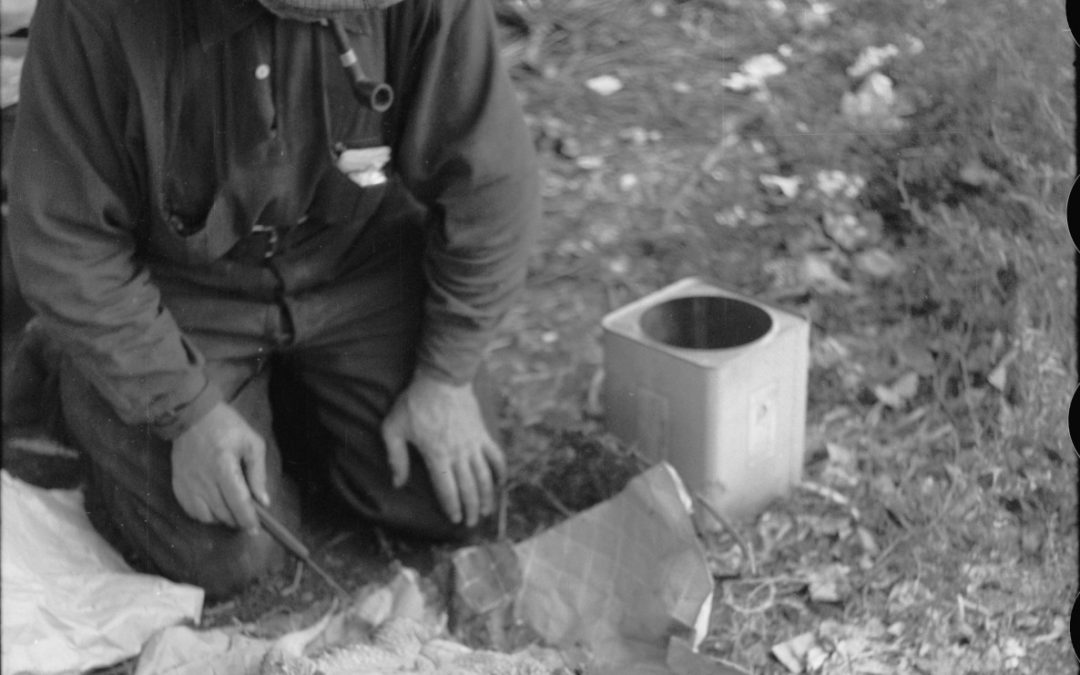
by Richard Subber | Jun 25, 2020 | Book reviews, Books, Joys of reading, Language
…relentlessly realistic dialogue…
(book review)
A Farewell to Arms
Ernest Miller Hemingway (1899-1961)
New York: The Modern Library, 1932.
It’s been a while since I read Hemingway.
A Farewell to Arms is a slow starter, and again I learned to pace myself without too much trouble. The action is restrained but steady, and again I realized gradually that a key element is the relentlessly realistic dialogue.
The American protagonist, Frederick Henry, is involved in every scene. The life of the book is his life. His recurring, desultory involvement in his own life and his role in the Italian Army in World War I is the backdrop of his elaborately recounted relationship with the nurse, Catherine Barkley.
A Farewell to Arms doesn’t really seem to be a war novel. On the other hand, except for brief interludes, the characters really don’t seem to be at peace. For Frederick Henry, it’s an ironic farewell.
* * * * * *
Book review. Copyright © Richard Carl Subber 2020 All rights reserved.
Book review: Seven Gothic Tales
by Isak Dinesen
lush and memorable stories…
–
Above all: Poems of dawn and more with 73 free verse poems,
and the rest of my poetry books are for sale on Amazon (paperback and Kindle)
and free in Kindle Unlimited, search Amazon for “Richard Carl Subber”
* * * * * *

by Richard Subber | Apr 10, 2020 | American history, Book reviews, Books, History, Revolutionary War
…and those hairy, smelly foreigners
Book review:
Red, White, and Black:
The Peoples of Early North America
by Gary B. Nash (b1933)
American historian
Upper Saddle River, NJ: Prentice Hall, copyright 1974, 4th ed. 2000
362 pages
Red, White, and Black offers many partial answers to the question: in the 16th and 17th centuries, what did the First Americans think about the hairy, smelly people from Europe who invaded their country?
Nash offers a scholarly, fully informed, insightful account of the lifestyles and world views of the estimated 60-70 million indigenous people who had a variety of highly developed civilizations.
Some European promoters and some uninformed explorers and colonists reported that the “New World” was a “virgin wilderness,” but the first colonists were happy to steal the Native Americans’ food and delighted to be able to use their cultivated lands.
The misnamed Indians valiantly tried to maintain their way of life, but European diseases and European guns and steel tipped the balance for the much outnumbered invaders.
* * * * * *
Book review. Copyright © Richard Carl Subber 2020 All rights reserved.
Fire in the Lake (book review)
really, you should have read it in 1972…
by Frances FitzGerald
–
Writing Rainbows: Poems for Grown-Ups with 59 free verse and haiku poems,
and the rest of my poetry books are for sale on Amazon (paperback and Kindle)
and free in Kindle Unlimited, search Amazon for “Richard Carl Subber”
* * * * * *

by Richard Subber | Apr 1, 2020 | Human Nature, Reflections, Tidbits
The “Hobo Ethical Code”
Maybe you were thinking there’s no such thing as a “Hobo Ethical Code.”
(I’m not talking about “Politician’s Ethical Code,” don’t get me started….)
In 1889, at the Hobo National Convention in Chicago, the folks who proudly called themselves “hobos” adopted an ethical code that stands the test of time. You can read it below.
You’re right, we don’t have to spend a lot of time these days on the “boil up” part, but just about everything else in the 15-point code has some application to life today.
In fact, living like a noble hobo doesn’t sound like a bad idea at all.
For the record, a hobo is a migratory or homeless worker who looks for work, standing apart from the “tramp” who works when there isn’t much of an alternative and the “bum” who avoids work altogether.
Decide your own life; don’t let another person run or rule you.
When in town, always respect the local law and officials, and try to be a gentleman at all times.
Don’t take advantage of someone who is in a vulnerable situation, locals or other hobos.
Always try to find work, even if temporary, and always seek out jobs nobody wants. By doing so you not only help a business along, but ensure employment should you return to that town again.
When no employment is available, make your own work by using your added talents at crafts.
Do not allow yourself to become a stupid drunk and set a bad example for locals’ treatment of other hobos.
When jungling in town, respect handouts, do not wear them out, another hobo will be coming along who will need them as badly, if not worse than you.
Always respect nature, do not leave garbage where you are jungling.
If in a community jungle, always pitch in and help.
Try to stay clean, and boil up wherever possible.
When traveling, ride your train respectfully, take no personal chances, cause no problems with the operating crew or host railroad, act like an extra crew member.
Do not cause problems in a train yard, another hobo will be coming along who will need passage through that yard.
Do not allow other hobos to molest children; expose all molesters to authorities…they are the worst garbage to infest any society.
Help all runaway children, and try to induce them to return home.
Help your fellow hobos whenever and wherever needed, you may need their help someday.
p.s. It seems that no one knows how the word “hobo” originated.
* * * * * *
Copyright © Richard Carl Subber 2020 All rights reserved.
Book review:
Collected Poems of Sara Teasdale
Full of her passion, not mine…
click here
–
My first name was rain: A dreamery of poems with 53 free verse and haiku poems,
and the rest of my poetry books are for sale on Amazon (paperback and Kindle)
and free in Kindle Unlimited, search Amazon for “Richard Carl Subber”
* * * * * *

by Richard Subber | Mar 17, 2020 | My poetry, Poetry, Reflections
Look who’s counting!
At a certain age, counting fingers is a big thing.
Numerology
He’s counting his fingers now,
another threshold passed without a look back.
He puts some energy into it,
doesn’t remember to count every one every time,
but he’s counting, he’s doing it.
Old Grandfather starts it off,
tapping fingertips,
“One, two, three…”
and he picks up the rhythm,
splaying the fingers of one hand,
fearlessly extending the count,
“…four, five, seven, eight.…”
A couple of those eager fingers get counted twice,
sticking up like chicks in the nest stretching for the worm,
and that’s alright, those fingers are stretching
for the joy of discovery
and the cool of flashing in the air
in the ritual of counting fingers with Old Grandfather,
and counting twice is confirmation, not a sin.
We do it again.
Same noisy delight. Different count.
Someday he’ll understand that doing it together is what counts.
October 10, 2015
My poem “Numerology” was published in my first chapbook, Writing Rainbows: Poems for Grown-Ups. You can buy it on Amazon (paperback and Kindle), or get it free in Kindle Unlimited, search for “Richard Carl Subber”
Previously published in The Australia Times Poetry, miller’s pond poetry magazine, and Whispers.
* * * * * *
My poetry. Copyright © Richard Carl Subber 2020 All rights reserved.
“…the ravell’d sleeve of care…”
wish I’d said that…(a bit of Shakespeare)
–
My first name was rain: A dreamery of poems with 53 free verse and haiku poems,
and the rest of my poetry books are for sale on Amazon (paperback and Kindle)
and free in Kindle Unlimited, search Amazon for “Richard Carl Subber”
* * * * * *

by Richard Subber | Feb 3, 2020 | Book reviews, Books, Global climate change, Politics
human beings may not survive…
Book review:
Losing Earth: A Recent History
by Nathaniel Rich
New York: MCD, Farrar, Straus and Giroux, 2019
206 pages
If you’re thinking that it’s just too much trouble to worry about global climate change and the prospect of a final end to human civilization, do read Losing Earth.
Rich lays it all out, in dispassionate history and an impassioned call for individual and collective action.
The stupefying truth is that nearly everything we know now about global climate change has been known by some sensible and honorable—and some greedy and dishonorable—men and women for the last 50 years.
Here’s the grisly truth: Losing Earth does not suggest any easy fix. There is no easy fix for the apocalyptic acceleration of global climate change, and the massive destruction of our living environment—our planet—that is already happening.
All of us need to try to empower leaders who will take the long view and do the right thing.
We need to “develop a strategy for expanding the limits of what is politically feasible.” The United States and our congress and our president must take the lead in any worldwide action that will be even partly successful.
For everyone, for you and for me, “the first requirement is to speak about the problem honestly: as a struggle for survival. This is the antithesis of the denialist approach. Once the stakes are precisely defined, the moral imperative is inescapable.” Start by telling yourself the truth.
We have to start saying out loud, to each other, that we love our children and our grandchildren with all our hearts, and we want to make it possible for them to live their full lives in some kind of comfort on this planet.
* * * * * *
Book review. Copyright © Richard Carl Subber 2020 All rights reserved.
Book review: The House by the Sea
May Sarton’s travels, in her mind…
click here
–
As with another eye: Poems of exactitude with 55 free verse and haiku poems,
and the rest of my poetry books are for sale on Amazon (paperback and Kindle)
and free in Kindle Unlimited, search Amazon for “Richard Carl Subber”
* * * * * *




